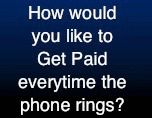The online habits of most people who use the world's dominant Web browser are an open book to advertisers. That wasn't the plan at first.
In early 2008, Microsoft Corp.'s product planners for the Internet Explorer 8.0 browser intended to give users a simple, effective way to avoid being tracked online (
InPrivate Filtering). They wanted to design the software to automatically thwart common tracking tools, unless a user deliberately switched to settings affording less privacy.
That triggered heated debate inside Microsoft. As the leading maker of Web browsers, the gateway software to the Internet, Microsoft must balance conflicting interests: helping people surf the Web with its browser to keep their mouse clicks private, and helping advertisers who want to see those clicks.
In the end, the product planners lost a key part of the debate. The winners: executives who argued that giving automatic privacy to consumers would make it tougher for Microsoft to profit from selling online ads. Microsoft built its browser so that users must deliberately turn on privacy settings every time they start up the software.
Read the full story at the Wall Street Journal by NICK WINGFIELD
